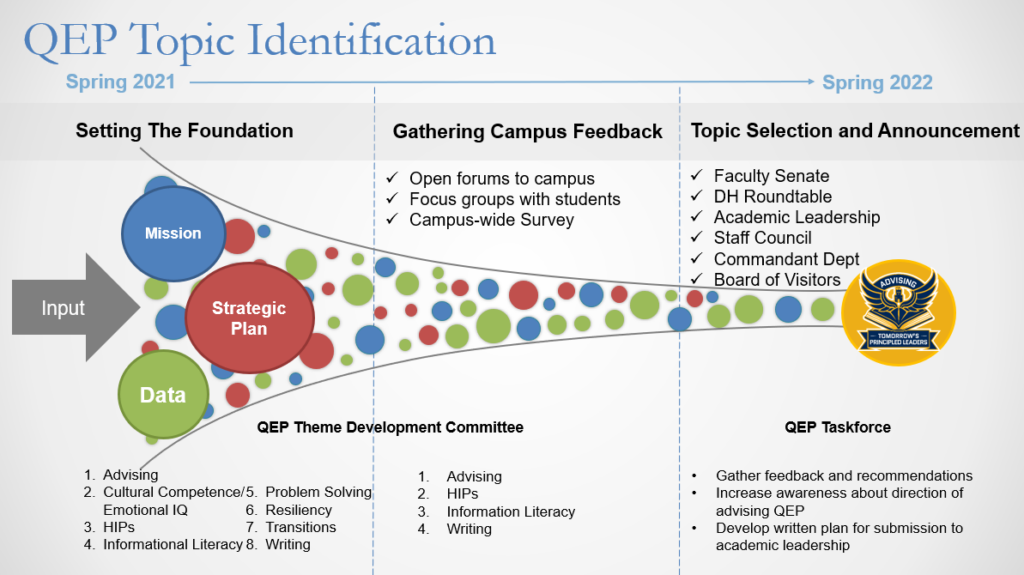What is a QEP?
QEP stands for Quality Enhancement Plan and it is a college-wide plan for improving student learning over a five-year period. The QEP is an opportunity for an institution to assess institutional quality and effectiveness in student learning and implement strategies for improving student learning and quality of higher education. Visit the SACSCOC website at http://sacscoc.org.
How does the QEP support the reaffirmation process?
The SACSCOC is committed to advancing the quality of higher education, and the QEP is an important part of the reaffirmation process. All institutions accredited by SACSCOC are required to determine the student learning needs of its students using data-driven approaches and develop a QEP to improve student learning.
How did we design the QEP?
According to SACSCOC guidelines (Standard 7.2), a QEP should:
- Contribute to the improvement of student learning or the environment for student learning;
- Emerge from an institutional process that identifies key issues emerging from institutional assessment;
- Be based on demonstrated need or opportunity to improve student learning that can be supported by data;
- Be linked to The Citadel’s strategic plan (Our Mighty Citadel 2026) and/or institution mission;
- Be focused and assess-able;
- Not be narrowly targeted toward a small or isolated subset of The Citadel student body;
- Have the support of students, faculty, and other stakeholder groups that may be involved in its implementation.
What was the timeline for our next QEP?

What was the topic selection process?

